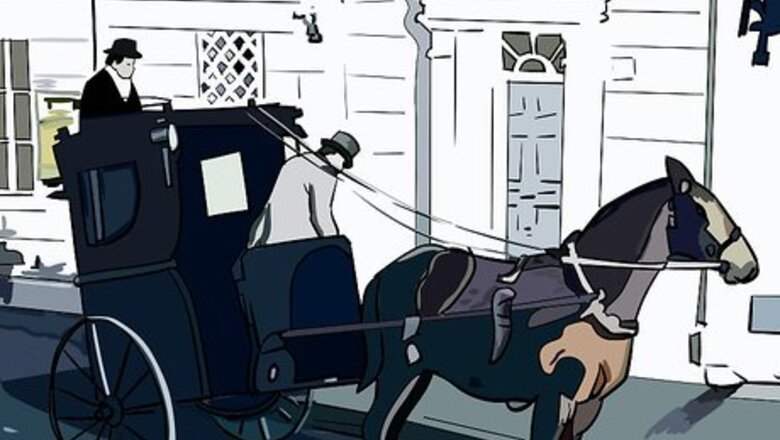
views
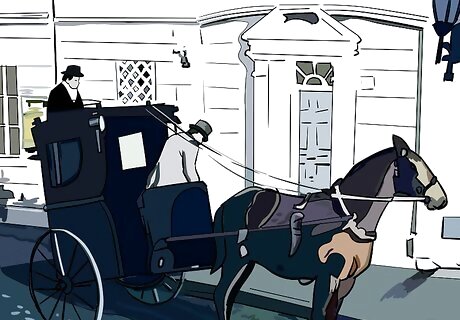
Choose a time period for your detective story. It may be any time, any place, from Ancient Egypt to the future. Have a thorough study about what happened in any country; any kind of murder,theft or robbery, any kind of strange case known. If the case never closed, you could make it end in any way you please.
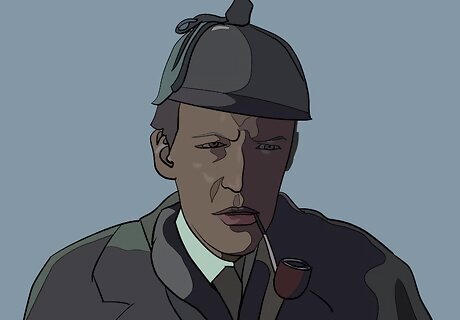
Develop the personality of your detective. He or she could be tough, perceptive or patient, or perhaps all three. Being thorough in this step can help you write a believable story based on a complete and well-rounded main character, so some suggestions for things to consider are offered here: Think of the basics. Male or female? What is the detective's name? How old are they? What do they look like (hair color, eye color, and skin tone)? Where are they from? Where are they living when your story starts? How did they become part of the story? Are they victims? Are they the cause of the problems in your story? Develop a family for your character. Parents? Siblings? Significant other? Children? Other relations? Sociably problematic groups? A character which may know everything but has disappeared... Make it as normal or as quirky as you want! What kind of life do they live? Are they famous, or are they just starting out? Are they unexpectedly smart? What kind of mysteries do they solve? (Murder, theft, a combination, other kinds?) Develop their tastes. Favorite sentence to say? What is their favorite color? Place to be? Soft drink? Book? TV show? Movie? Music? Meal? What are they afraid of? How practical are they? Do they wear a scent, and if so, what scent? Strong, soft, nice or not pleasant? Develop their relationships. Do they have a lot of friends? A best friend? Are they romantic? What first impression do they make? Do they like children? Do they like smokers? Do they like reading? How do they dress? Do they use makeup or hair dye? How about piercings or tattoos? How attractive are they, and how attractive do they think they are? Is there something they wish they could change, or something they are particularly happy with? How much time do they spend thinking about physical appearance? Though this may seem like a lot to worry about for a short story, having your characters developed to the fullest is an essential part of writing a good story and to making the character believable.
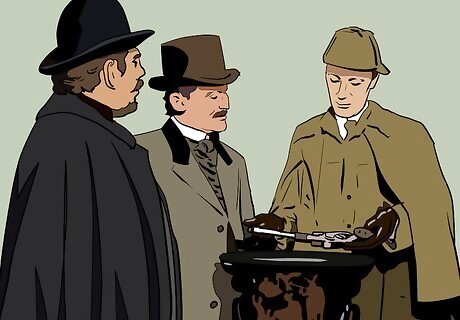
Think of a plot and a mystery. Use Who? What? When? Where? Why? How? questions to get you started: Who committed the crime and who did they do it to? What was the crime? When did it happen (morning, evening, afternoon, dead of night)? Where did it happen? Why did they do it? How did they do it? Use this skeleton to more fully sketch out a summary of your plot, with as many details as you can think of at this point. By now, plot ideas will be boiling around in your brain. Don't even worry about putting them in order, just write them down somewhere so that you don't forget them later!
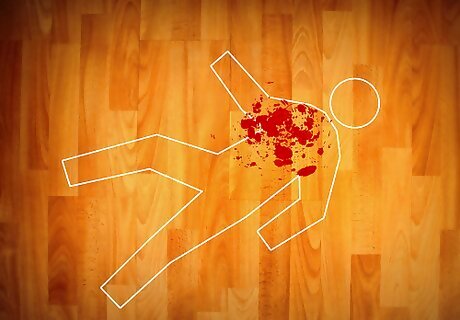
Think about the crime scene. This is an especially important part of your story, so take the time to really develop it fully. Try to describe every single detail so that the reader can picture the crime scene. What does it look like? Is it different by day than by night?.
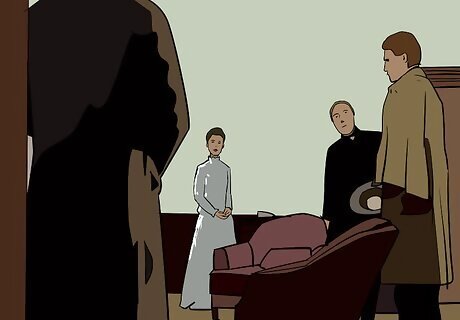
Make an antagonist. Go back and look at the questions you used for forming the protagonist, and develop the antagonist's personality just as fully. In particular, think about their relationship to the protagonist.
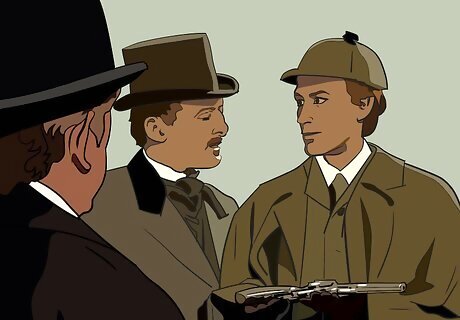
Think deeply about the mystery, suspects, antagonist, etc. Make sure you have all of your ducks in a row before you begin writing. Make a list of the suspects. Detail their basic personality. Do the same for witnesses and any other characters. Be sure to have in mind how the mystery is solved!
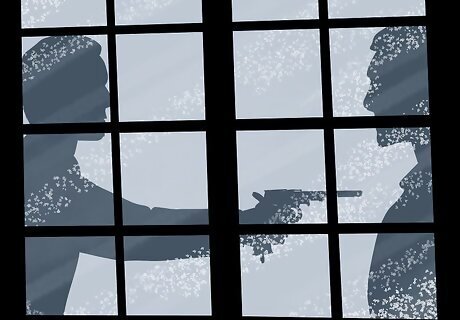
Think of the type of the detective work. The detective work must be good. Develop how your protagonist ultimately solves the case, keeping their personality and qualities in mind. Make sure it isn't cheesy or too obvious.
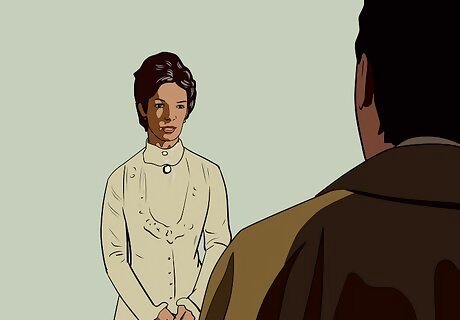
Begin writing. Start with an introductory chapter or two, to introduce the characters and setting. Then make the crime scene happen.
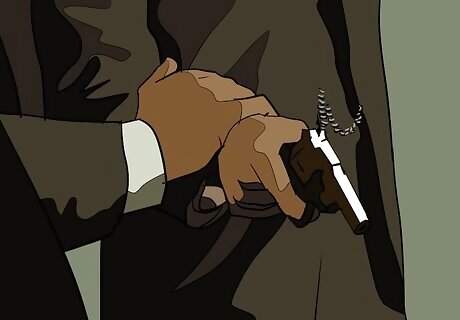
Introduce the suspects and witnesses.You may include their looks,height(tall or short),expressions,what might be the perception of others towards her,etc. For example: "Annie entered the office. She was a tall woman with thin legs and hands. Her face looks like a diamond...". Make sure that you give the reader a vivid picture of each character.
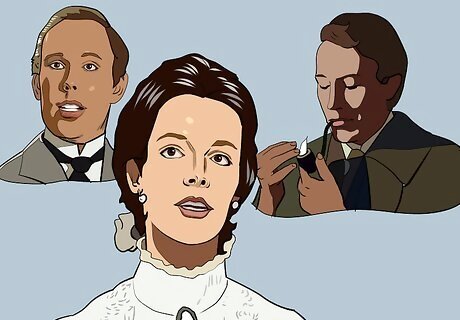
Create suspense. The more suspense you insert into the unfolding of the story, the more interesting the story will be. Make the protagonist get stuck in a couple of impossible-seeming situations and obstacles. Don't make the mystery too easy to solve!
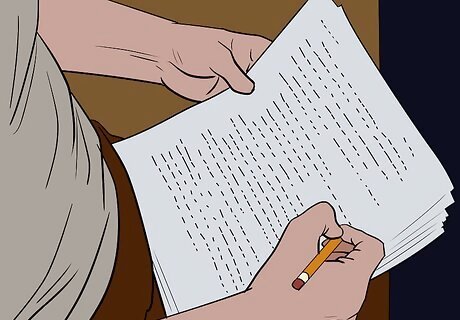
At the end, reveal the motive of the crime. Be sure the ending is clear on who committed the crime and why, and how it was solved. There is nothing worse than leaving a mystery story extremely confused about what was going on!
Check the story a couple of times and make sure that there are no mistakes. Rewrite as needed, and reword dull passages to make them more interesting. Cut out as many unnecessary fillers as you can. You want your story to be the best that it can be. If you are writing a book for the first time, write a short story. The story should have a beginning, a middle, and an end. It can be 1500 to 2000 words. That can be a great training ground for writing a book. Flash fiction is a great place to start. There are many opportunities to publish flash fiction online and in magazines.




















Comments
0 comment